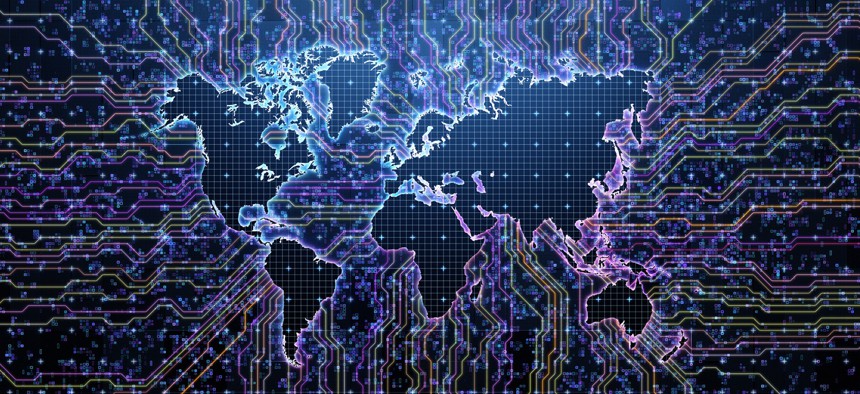US has shared AI security interests with ‘every country around the world,’ State official says

Jorg Greuel/Getty Images
Seth Center, the State Department’s deputy envoy for critical and emerging technology, broke down the U.S. diplomatic approach to cultivating cohesive regulatory approaches.
Threading the needle between innovation and security has created some friction with the desire to get ahead in geopolitical competition for emerging technologies, but, according to one State Department official, these two missions — maintaining competition while strategically safeguarding human rights — are not necessarily mutually exclusive.
“AI safety and risk, this truly needs to be a global conversation,” Seth Center, the State Department’s deputy envoy for critical and emerging technology, said in a Thursday conversation hosted by Foreign Policy. He added that this engagement can be done with China, one of the U.S.’s strongest competitors, even in the face of ongoing sanctions and political tensions.
“Chinese-backed companies are developing powerful AI systems,” he said. “We have shared interests, not just with China, but every country around the world, to make sure that as these systems are developed and deployed, that we have a shared sense and framework for how to manage the risks.”
The Department of State is taking a methodical approach to its posture on AI and the technology’s societal implications on an international scale, all of which hinges on a strong plurilateral and collaborative approach to diplomacy, Center explained.
“The reality is that we have moved extraordinarily quickly into the AI era, both in terms of the evolution of our domestic policy and in the evolution of our diplomacy,” he said. “I say that only as a backdrop to the international conversation, where we've really thought geometrically about expanding the strategy from a domestic approach that captures… a balance between the promise and peril of AI.”
Center said that aligning the G7 intergovernmental cohort around core issues related to the misuse of AI technology is an example of State’s forward-looking diplomacy.
Additionally, he confirmed U.S. participation in the United Nations’ efforts to launch a new resolution on safe and trustworthy AI systems, particularly tailored to the UN’s Sustainable Development Goals. He said that this resolution will aim to ensure the conversation around setting agnostic AI standards will be internationally inclusive.
“We moved quite quickly towards something like an emerging global consensus, at least at the architectural level, around how to strike the right balance,” Center said. “We have to recognize that there's a real diversity of views on finding this right balance between risk and opportunity.”
A key theme in the burgeoning global guidance on responsible AI innovation will be addressing challenges unique to individual nations — mainly debunking the notion that regulatory frameworks will hinder progress in AI technology innovation.
Despite the recent plurilateral discussions on global AI regulations, including the forthcoming UN resolution and prior international conversations that took place at Bletchley Park in England, Center acknowledged that, ultimately, individual countries will develop varying legal and regulatory frameworks.






